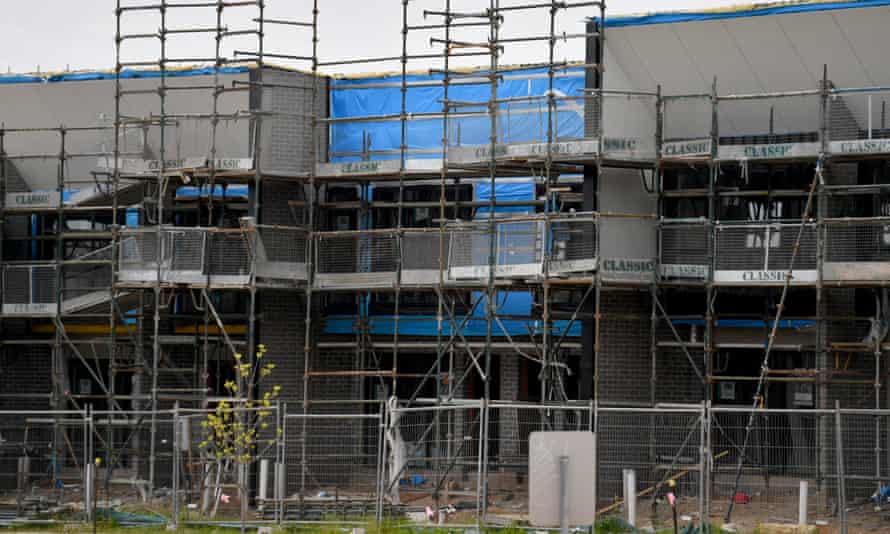Extract from The Guardian
Grogonomics graph of the week Housing
The Coalition’s homebuilder program does nothing to tackle rental stress and lack of affordability

Last modified on Sun 24 Jan 2021 10.05 AEDT
Both Scott Morrison and Joe Biden use the slogan “build back better”, but what they mean by it reveals some fundamental differences over who they believe the government should care about.
This week there was some focus on the homebuilder program after the latest home loan figures showed a strong surge in mortgages for building homes since July.
It certainly is an example of a policy working – giving people $25,000 if they take out a loan to build a house will, unsurprisingly, encourage people to do just that.
And while it will increase work in construction (yes, governments do create jobs), it is just the latest in a very long line of policies that have focussed on the housing market, in terms of keeping the value of housing rising.
The homebuilder program has increased the number of homes to be built for owner-occupiers, but since the depth of the pandemic in June, home loans for established homes have also sharply grown – and that has nothing to do with the program and all to do with record low interest rates.
In effect, as usual, economic policy prioritises people able to afford a home or those already owning one over those who cannot or do not.
This week, while the focus of economic data was on home loans and unemployment rates (down slightly – still 1.5% above where it was a year ago), the Productivity Commission released its report on government services and housing and the homeless.
It found that in 2018 half of low income households were in rental stress – a figure barely changed from a decade ago. And yet such news never generates attention at the policy level that house prices do.
Graph not showing? Click here
And so housing affordability for low and moderate income earners is ignored and continues to deteriorate.
The Productivity Commission report found that in 2009-10 there were just 42 homes per 1,000 low-moderate households for sale in NSW that were affordable; by 2017-18 that had fallen to 17.
Morrison has talked often about “build back better” and it is a weird coincidence that Biden also uses the phrase.
But the same slogan does not mean the same priorities.
Biden talks of raising the minimum wage and his housing policy specifically notes that the USA has “a shortage of available, affordable housing units for low-income individuals”.
It notes that “tens of millions of Americans spend more than 30% of their income on housing” and concludes that “it is far past time to put an end to systemic housing discrimination.”
These problems occur here as well and yet they are not addressed.
The Productivity Commission found that a decade ago 3.9% of households resided in public housing, falling to 3.1% by 2017-18. And yet at the same time rental stress had not fallen and housing affordability for such households had decreased.
Clearly the shift has just been about these households being forced through lack of social/public housing supply to move to private rentals and making life worse.
While half of those in the private sector suffer rental stress, just under a quarter of those in 2017-18 living in social housing were suffering so.
There is no question that life is tougher in the private rental market than if you live in social housing – it’s almost like policies such as negative gearing are more about helping landlords than increasing the rental stock.
Investing in building social housing also doesn’t help keep house prices up or directly give money to those who can already afford to build their own home
But that’s what happens when your priorities cater to those who you think will vote for you and the rest are left to realise that they are not among those who are entitled to build back at all.
No comments:
Post a Comment